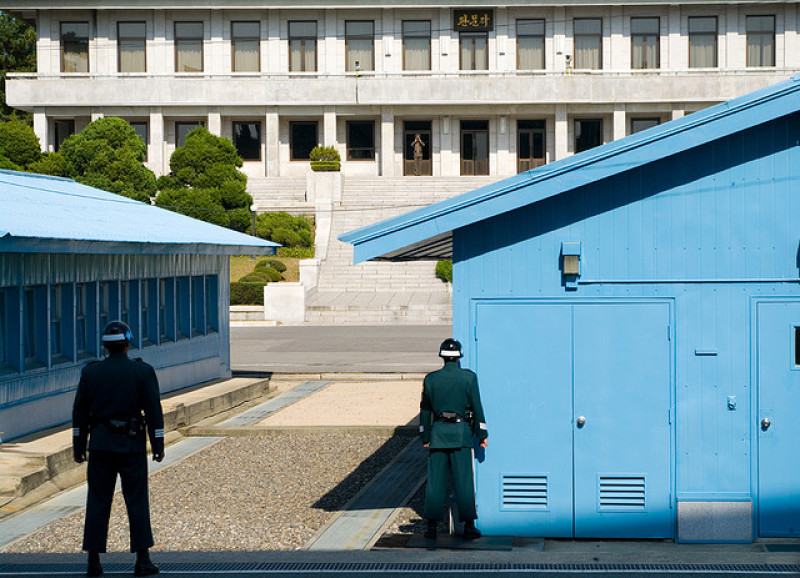

For many years now, especially at this year's United Nations General Assembly, nations all over the world including the United States and South Korea have been pressuring North Korea to provide their citizens with the most basic human rights. North Korea's Korean Association For Human Rights however, has stated that their nation may respond to any form of intervention from the global community with force.
North Korean ambassadors have openly criticized the most recent COI (Commission of Inquiry on Human Rights in the Democratic People's Republic of Korea), saying that the U.S. and its allies are out to diminish the reputation of the DPRK, using the issue of human rights as an excuse. They moved on to state that the report cannot be believed and was highly biased because they claimed they could not believe the testimonies of defectors that provided a great deal of information regarding the penal labor camps and their reign of terror.
Although the 60 North Korean representatives who visited the United Nations headquarters in New York City on the 15th to deliver plans for improving the treatment of North Korean citizens, so far the DPRK has shown an extremely dual attitude towards the global community.
North Korea has always shown drastic changes of attitude when it came down to their foreign policy. South Korea's Chosun Ilbo reported that right after they dispatched 3 of their major political figures to South Korea for a meeting on October 4th, a North Korean naval vessel crossed the maritime border at the Yellow Sea and engaged in a fire fight with the ROK Navy. This was the first direct battle between the 2 countries in 5 years. Though no lives were lost during the brief exchange, the entire South Korean military was on the alert for additional provocations.
Also on October 10th, North Korean troops stationed at the DMZ fired an antiaircraft gun at fliers that were sent across the border from a missionary organization that was composed of defectors who wanted to reveal the truth about DPRK to their fellow North Korean people. As a result, the towns located near the DMZ had to declare a state of emergency with the military and police forces telling residents to move to nearby shelters. Again, no lives were lost but tension in the Korean peninsula escalated a great deal.
5 days later, North Korean military leaders held a conference with South Korean generals at Panmunjum, the only contact point between the 2 Koreas at the DMZ.
Some Korean newspapers went as far as to use the word "taming" to describe North Korea's recent foreign policy, while creating a sense of military tension, they constantly use diplomacy to create an atmosphere that made it appear as if North Korea was ready to talk.
Some experts have expressed that North Korea may be using this strategy to stir up conflict and disagreement among South Korean leaders. Though many experts have shown different opinions regarding how South Korea should respond to North Korea's attitude, many defector have expressed some frustration towards Korea's indecisive and somewhat limited foreign policies and diplomatic strategies. On major North Korean defector, Jang-yeop Hwang, who served in the North Korean government ever since the reign of Kim Il-Sung, the founder of DPRK, stated that the best strategy was to not negotiate with the regime and stand firm. His opinion did not receive great attention from either South Korea or the global community however.
Many experts have in fact made the comparison to the situation in South Vietnam before the fall of Saigon in 1975. At the time, many North Vietnamese Communists have worked to stir a great deal of turmoil within South Vietnam before they invaded after the withdrawal of the U.S. forces. Despite the fact that the capitalist South's military could have overpowered the communist North, the political conflicts going on within the South allowed the North Vietnamese to finally overtake Saigon.
Meanwhile, South Korea's president Guen-Hye Park has expressed that Korea will not be tolerating any kind of provocation from the North, and DPRK should seriously consider allowing its citizens to benefit from the most basic of human rights.



















